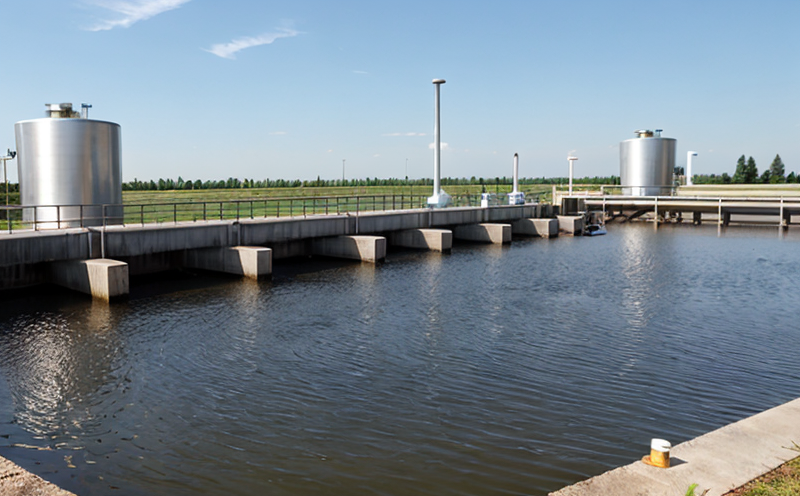WHO Standards Microbiological Safety of Irrigation Wastewater
The World Health Organization (WHO) has established comprehensive guidelines and standards to ensure the microbiological safety of irrigation wastewater, which is crucial for preventing waterborne diseases and ensuring public health. The primary goal of these WHO standards is to safeguard human health by minimizing exposure to harmful microorganisms that can be transmitted through irrigated crops.
The criteria for assessing the microbial quality of irrigation wastewater are stringent and vary depending on intended uses such as agricultural, recreational, and potable reuse applications. This service focuses specifically on testing according to WHO standards for the microbiological safety of irrigation wastewater used in agriculture or horticulture.
Testing involves various steps including sample collection, preservation, transport, and analysis using advanced techniques like quantitative PCR (qPCR), culture-based methods, or a combination thereof. The service also includes interpretation of results based on WHO guidelines to determine compliance with safety thresholds for fecal coliforms, enterococci, and other indicator organisms.
Our laboratory employs state-of-the-art facilities equipped with the latest technology in microbiology and molecular biology to perform these analyses reliably. Our team comprises highly qualified professionals who possess deep expertise in both theoretical knowledge and practical experience related to water quality assessment. This ensures that every aspect of your sample analysis is handled meticulously.
The testing process typically starts with proper sampling from the source of wastewater, followed by preservation using appropriate media or fixatives before transportation back to our laboratory. Once received at our facility, detailed protocols are followed for processing samples according to internationally recognized standards such as ISO 16140-2:2019 and WHO guidelines.
Our comprehensive approach includes not only the detection of pathogens but also an assessment of potential risks associated with their presence in irrigation waters. By adhering strictly to established protocols, we provide accurate measurements that reflect true conditions without introducing biases into our results.
Understanding how these standards impact different sectors is essential for effective implementation across various industries. In agriculture and horticulture, ensuring compliance with WHO guidelines helps protect both producers and consumers from health risks linked to contaminated crops or fruits/vegetables grown using treated wastewater.
Why It Matters
The significance of adhering to WHO standards for the microbiological safety of irrigation wastewater cannot be overstated. Proper management and treatment of wastewater used in agriculture play a vital role in maintaining public health while promoting sustainable practices within this sector.
- Reduces risk of waterborne diseases
- Promotes safe food production
- Supports environmental sustainability initiatives
- Aids compliance with international regulatory frameworks
- Enhances reputation among stakeholders and consumers
Applied Standards
| Standard Name | Description |
|---|---|
| WHO Guidelines for the Safe Use of Wastewater, Excreta and Greywater in Agriculture and Aquaculture | Provides comprehensive guidance on managing wastewater used in agriculture or aquaculture to ensure safety. |
| ISO 16140-2:2019 Microbiology of Water Quality - Determination of Fecal Indicator Organisms | Details procedures for quantifying fecal coliforms and Escherichia coli in water samples. |
Use Cases and Application Examples
- Treatment plant operators seeking certification under WHO guidelines
- Agricultural producers looking to ensure compliance with international standards for irrigation water quality
- Retailers concerned about the safety of produce grown using treated wastewater
- Health authorities responsible for monitoring and regulating agricultural practices





